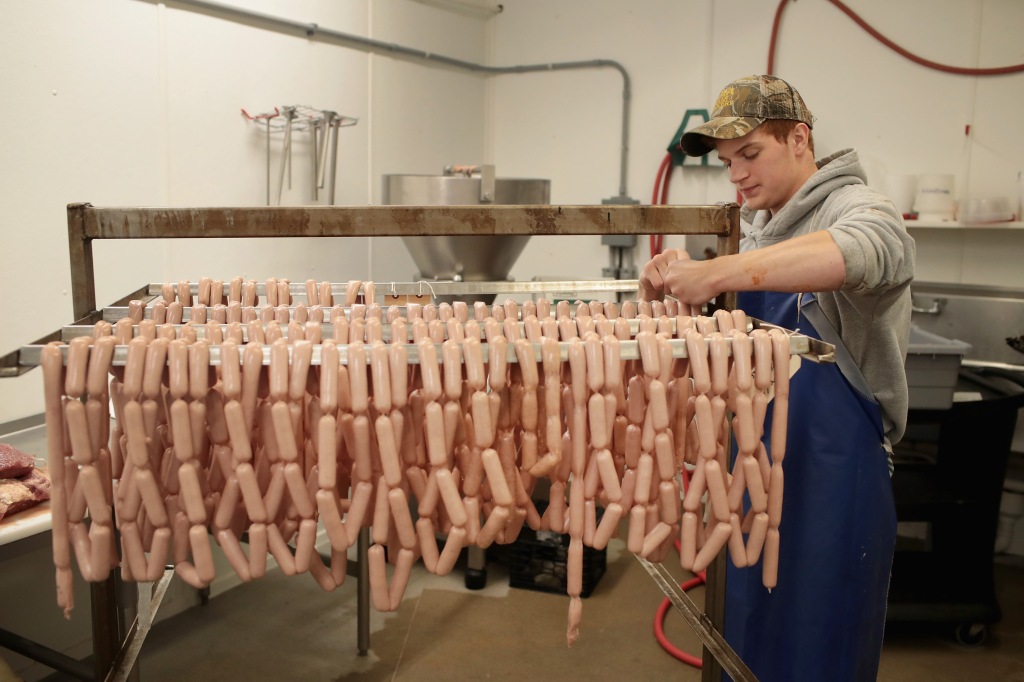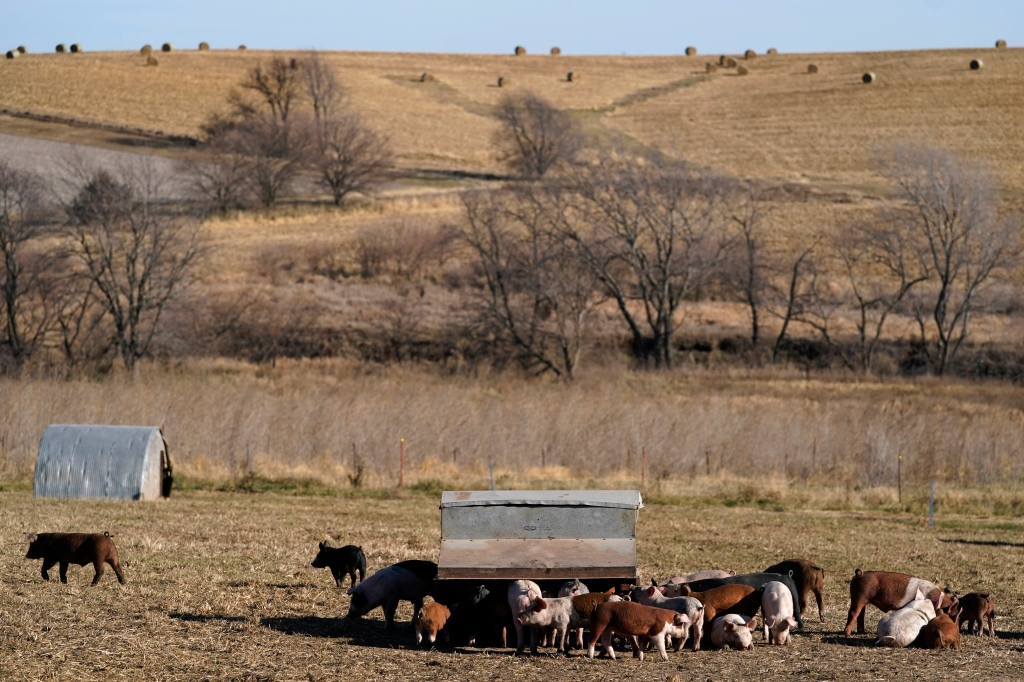Supreme Court rejects challenge to California animal abuse law
The Supreme Court has denied a challenge to a California animal cruelty law that requires more space for breeding pigs, opposing pork producers’ attempt to overturn the legislation that they say could lead to price increases industry-wide.
The justices ruled Thursday that the Ninth Circuit Court of Appeals acted appropriately by dismissing a pair of out-of-state pork producers’ cases against the Golden State.
The meat makers had argued the California law “unconstitutionally interferes with their preferred way of doing business in violation of this Court’s dormant Commerce Clause precedents,” Justice Neil Gorsuch wrote in the majority opinion.
The law, Proposition 12, requires all pork sold in the state of California to come from pigs whose mothers were raised with a minimum 24 feet of space, allowing them to move around and lie down.
The law de facto bans the use of metal “gestation crates” typically used in the pork industry.
Gorsuch and four other justices — Clarence Thomas, Sonia Sotomayor, Elena Kagan and Amy Coney Barrett — ruled companies must comply with the laws of the states in which they choose to sell.
“While the Constitution addresses many weighty issues, the type of pork chops California merchants may sell is not on that list,” Gorsuch wrote.

The Commerce Clause of the Constitution prohibits states from using its laws to “discriminate purposefully against out-of-state economic interests.” However, Gorsuch wrote, the majority found that the plaintiffs “do not suggest that California’s law offends this principle. Instead, they invite us to fashion two new and more aggressive constitutional restrictions on the ability of States to regulate goods sold within their borders.
“We decline that invitation.”
The Biden administration had argued against the California law, telling the court Proposition 12 had “thrown a giant wrench” in US pork production and warning the law would cause a “wholesale change in how pork is raised and marketed in this country.”


The American Farm Bureau Federation and National Pork Producers Council, the pork producers at the center of the suit, said nearly 72% of farmers who use individual pens, and even those who house sows in larger groups, do not do so in line with the California requirement.
They argued Californians account for 13% of the country’s pork consumption, but nearly all of it is from pigs raised elsewhere.
The law, the producers added, could cost the pork industry between $290 million and $350 million.
With Post wires
Read the full article Here


